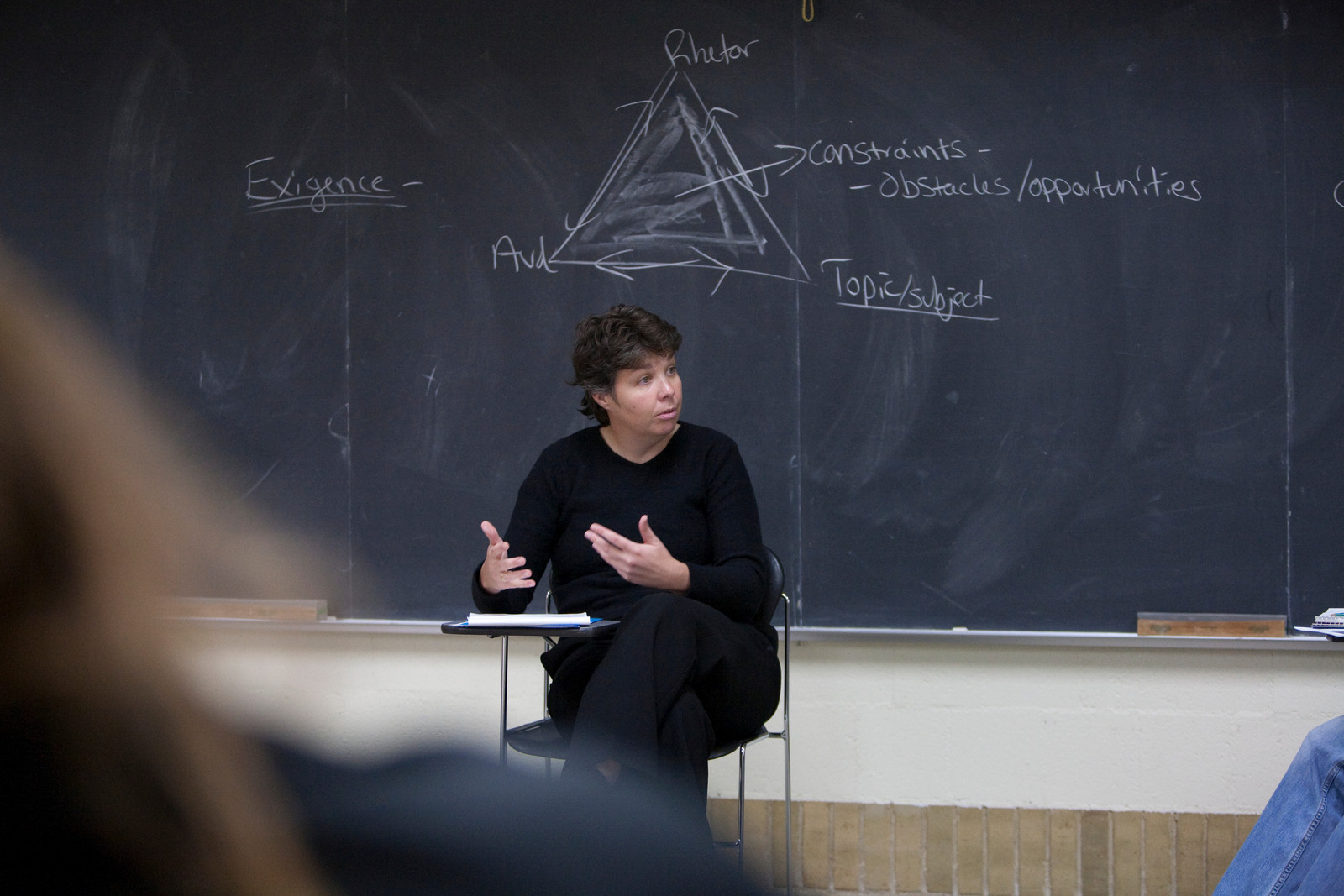Gustavus Adolphus College communication studies professor Leila Brammer is partnering with the Kettering Foundation to bring deliberative democracy to classrooms across campus in an effort to build community and instill effective communication practices.
“The theory behind deliberative democracy is that we can take different viewpoints, use deliberation to move together to shared ground, and then ultimately find a shared solution,” explained Brammer. “We are constantly shown negative examples of debate in the media, and we are not shown how debate can actually be utilized productively. With the help of the Kettering Foundation, our purpose is to correct this.”
Brammer, an expert in political rhetoric featured on WCCO Radio, Kare 11, and other Minnesota outlets, has been invited to collaborate with multiple Kettering Foundation projects and working groups since 2011. Now, as a compilation of the research and work completed in her first project with the organization, a book is set to be published and released this spring. It will include information about the theory, practice, and assessment of deliberative pedagogy in the college classroom.
“We know that teaching students deliberation has significant measurable outcomes. It can be a transformational experience for students, which is why we strive to bring these practices to Gustavus,” Brammer explained. “Using communication in a productive manner is a lifelong skill that we want to teach all our students.”
At Gustavus, Brammer and communication studies professor Pamela Connors are currently taking steps to implement a new project from the Centers for Civic Life programs of the Kettering Foundation. Focusing on teaching students deliberation and dialogue at the community level, the program’s goal is to train and deploy a group of students as community leaders in facilitating conversations about key issues. Brammer intends to build the course in deliberative pedagogy into the forensics program, embedding dialogue and public deliberation into the debate elements.
“We may have distinct disagreements about issues, yet we can still respect one another and work together to find a solution and communication is a vehicle in which we can learn to live well together,” said Brammer. “I envision a community at Gustavus and Saint Peter where we can hold community conversations proactively to move forward effectively in the face of a divisive issue whether it be local or national.”
The emphasis on the power of communication and the appreciation of productive debate is especially relevant for Brammer under society’s current climate.
“It is exciting to think about the way in which our field can be a tool in navigating society’s operations, especially in such a heated atmosphere surrounding the election,” Brammer explained. “Regardless of what happens on Tuesday, the most important part remains living well together on Wednesday and communication with deliberation and discussion is a necessary start.”
 Founded in 1927, the Kettering Foundation is a nonprofit organization that is designed and run through cooperative research to determine the most effective ways in which productive democracy can exist. Seeking to bring communities together, the Foundation works with community partners, from newspaper reporters and elementary classrooms to professors and classes in liberal arts institutions across the country, to investigate and implement deliberative and discussion-based practices. To learn more about the Kettering Foundation, visit the organization’s website.
Founded in 1927, the Kettering Foundation is a nonprofit organization that is designed and run through cooperative research to determine the most effective ways in which productive democracy can exist. Seeking to bring communities together, the Foundation works with community partners, from newspaper reporters and elementary classrooms to professors and classes in liberal arts institutions across the country, to investigate and implement deliberative and discussion-based practices. To learn more about the Kettering Foundation, visit the organization’s website.

Leave a Reply
You must be logged in to post a comment.